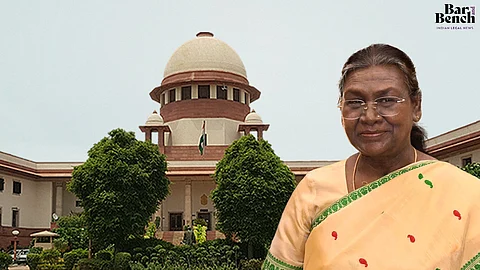Droupadi Murmu and Supreme Court
News
What is wrong in President seeking views of court? Supreme Court on Presidential reference in Governors' case
The Court made the observation in response to the opposition by States like Kerala and Tamil Nadu which have questioned the maintainability of the reference.
The Supreme Court on Tuesday prima facie expressed favourable view with regard to the maintainability of the reference made by President Droupadi Murmu under Article 143 in relation to the ruling that set timelines for Governors and the President to grant assent to bills passed by legislatures.

